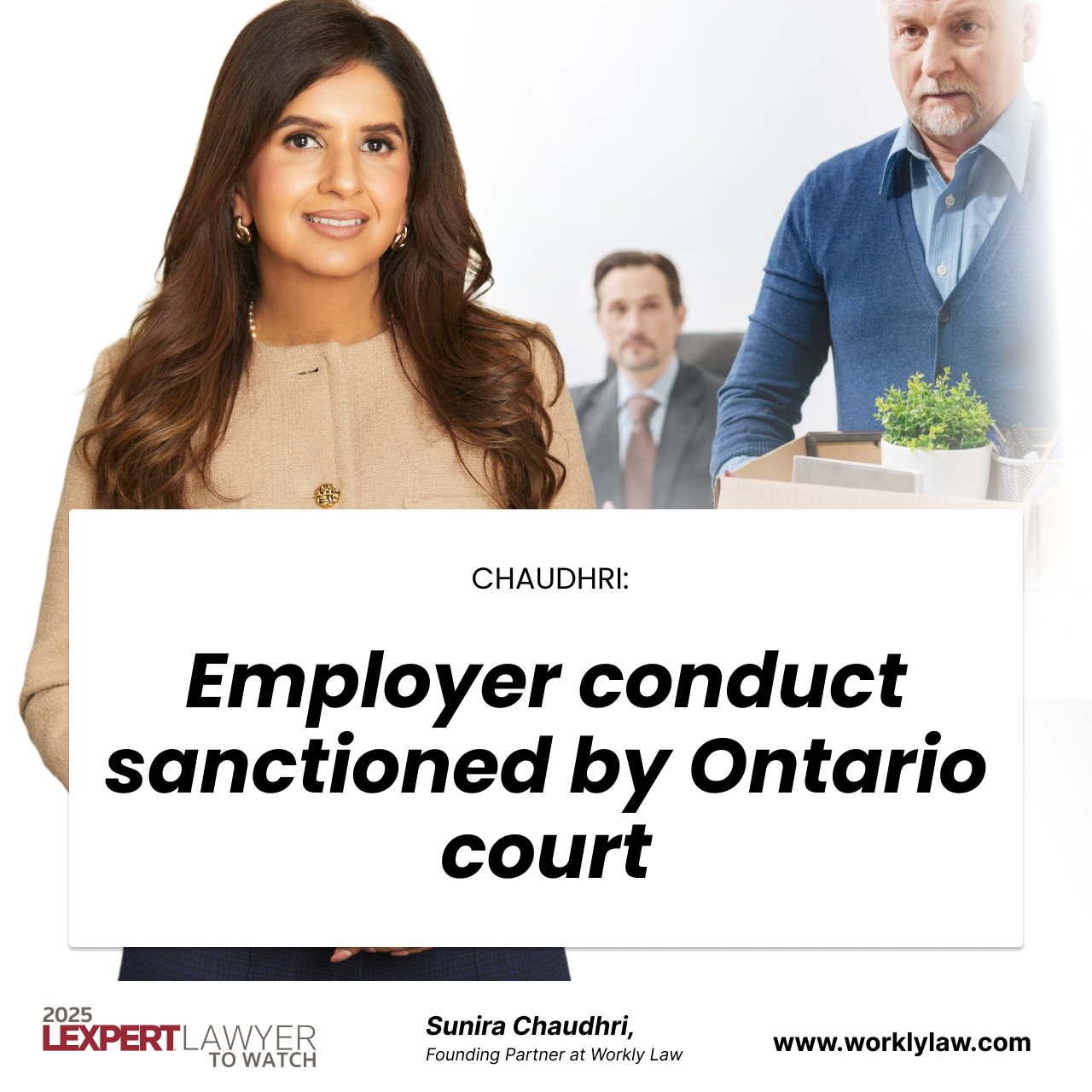Sunira Chaudhri
CHAUDHRI: Chronic overwork is a problem employers shouldn’t ignore

Leo Lukenas was an investment banking associate at the Bank of America when he died at the age of 35.
His death came two days after helping to close a $2 billion deal for the institution and after working 100-hour work weeks.
Lukenas’ cause of death was acute coronary artery thrombus, which led to blood clots in his heart.
To address the negative image associated with the industry, another leading financial institution – JP Morgan chase – announced the promotion of an executive to oversee “wellness” of junior bankers. J.P. Morgan released a policy limiting bankers from working more than 80 hours a week, presumably to promote the “wellness” of its employees.
Let’s break that down: 80 hours a week would look something like being behind your desk from 7 a.m. to 11 p.m., Monday to Friday. Or, it means 8 a.m.-8 p.m. Monday to Friday with a further 20 hours of work to be divided between Saturday and Sunday.
If that is the new hallmark of wellness for JP Morgan chase, what was the standard before?
Let’s also consider the nature of the work at issue. Investment bankers working on deals have some “down time” with every deal but must be available to spring into action at a moment’s notice. Closing a deal requires a sustained level of intensity, focus and attention to detail.
It requires very long, uninterrupted hours away from home and family. Bankers are often not able to leave the office except for a quick shower and a few hours of sleep. There is little if any time for the mundane but necessary tasks of normal life like grocery shopping or picking your kids up from school.
This regimen can sometimes go on for weeks. It takes a real physical and mental toll.
Now applying JP Morgan’s new policy, in the real world, it will have the absolute opposite effect of its purported intention. Setting a “limit” of 80 working hours a week will perpetuate panic among all the junior bankers who are working only 50-60 hours a week. Those who are working less will likely scramble and work toward the “limit” so as not to be perceived as less valuable – or worse, lazy.
A goal of 80 hours a week is not just unsustainable, it is a sign as to where employment law will go. Even though professionals are by definition rarely if ever entitled to overtime, there will come a point where courts will not turn a blind eye to the rigours of certain industries that routinely overwork their people.
I have worked with many financial professionals who have been overworked, required to adhere to intense travel schedules, meet grueling performance metrics, service clients in different time zones and, frankly, work around the clock. At times these executives have suffered immensely but in silence.
Employment lawyers have various ways of extracting damages for rampant, unchecked overwork, but there seems to remain an expectation that highly paid executives should have little expectation of boundaries, even when pushed beyond the brink. The fact is, once executives reach the point of severe burnout, they rarely are able to return to the industry that caused the damage. The personal and physical risks are too high. And former employers must be held to account by courts hearing these cases.
JP Morgan’s 80-hour work week policy is the most important document that every one of its investment banking employees should keep on hand in the event of a termination or a work-related illness. It is a clear and unimpeachable representation of the unsustainable work environment being perpetuated by the organization.
Overwork is quickly becoming a relic of the past. Industries clinging to unreasonable, demanding hours of their executives, will, in time, sow what they reap in the courts.
Have a workplace question? Maybe I can help! Email me at sunira@worklylaw.com and your question may be featured in a future column.
Related articles
POWER: Ontario Minimum Wage Increase Effective October 1, 2025
Effective October 1, 2025, Ontario’s general minimum wage will increase to $17.60 per hour (up from $17.20). This annual adjustment is tied to the Consumer Price Index and affects nearly all employees covered by the Employment Standards Act, 2000 (ESA). For employers, this increase is a timely reminder to review pay practices, budgets, and compliance processes before the fall.
CHAUDHRI: Employer conduct sanctioned by Ontario court
Courts do not want employees to be 'starved' by employers in an effort to have them accept lower packages on termination


